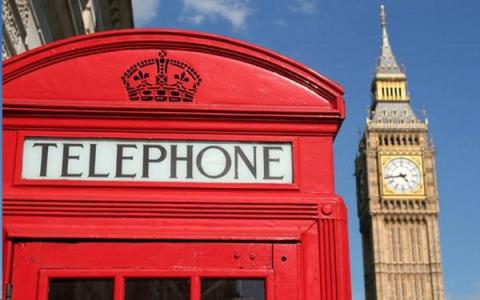Zadie Smith Lays Claim to a Patch of London in ‘NW’

NW
By Zadie Smith
Penguin Press
401 pages
It takes a page or two to get your bearings at the start of Zadie Smith’s new novel, set in North West London:
“The fat sun by the phone masts. Anti-climb paint turns sulphurous on school gates and lampposts. In Willesden people go barefoot, the streets turn European, there is a mania for eating outside. She keeps in the shade. Redheaded. On the radio: I am the sole author of the dictionary that defines me. A good line—write it out on the back of a magazine. In a hammock, in the garden of a basement flat. Fenced in, on all sides.”
A lot to take in, though Smith’s penetrating eye for detail is already on display in the sulphurous anti-climb paint and European streets. Soon enough we understand that the redheaded “she” who keeps in the shade is Leah Hanwell—one of four principal characters whose lives casually intersect and bounce away from each other, though all reside in NW, a small patch of London far from the glittering elite of Mayfair and Knightsbridge.
These characters (including Leah’s lifelong friend Keisha Blake, a reformed addict named Felix Cooper and Nathan Bogle, a sometime resident of the street) are deftly rendered in separate sections. Each in their own way wants a better life than the one they have here, but as we learn, hope only goes so far.
Throughout NW, Smith demonstrates a deep understanding of the constant ebb and flow of human relationships—between mothers and daughters, between best friends, between a reformed addict determined to stay clean and his flamboyant, drug-using ex-girlfriend. Even forewarned of an impending tragedy, the reader becomes so absorbed in these characters’ lives that when calamity does strike, it comes as a breathtaking surprise and with a penetrating sense of loss.
“My river of fire”
An unexpected arrival sets events in motion—the frenzied appearance of a street woman named Shar (“Leah has seen this face many times in these streets. A peculiarity of London villages: faces without names”). Shar asks for 30 £ to help her sick mum—money Leah gives her and is unlikely to ever see again. Despite the outrage this generous act causes her husband, Michel, or her mother, Pauline, Leah has bigger problems—a pregnancy no one knows about and that she doesn’t want:

“In late July, Michel insists: they must go forward. Leah agrees. They are placed on the NHS waiting list. But every morning, she locks the bathroom door and takes her little contraceptive pill. Stolen boxes from Natalie’s bathroom cabinet, hidden in a drawer. She doesn’t want to ‘go forward.’ For Leah, that way is not forward. She wants just him and her forever.”
Felix, a car mechanic formerly “in films,” strives to stay clean of drugs and alcohol, and to make a new life with Grace (“He had known many women: he didn’t think he had ever known anyone quite so female”). In the course of a day he will drop in on his father, purchase a decrepit automobile, interact with various denizens of NW, and visit Annie, an ex-girlfriend who has no use for his quest for normalcy:
“‘You know, Felix’—a dainty little voice, like a waitress reciting the specials—‘Not everyone wants this conventional little life you’re rowing your boat toward. I like my river of fire. And when it’s time for me to go I fully intend to roll off my one-person dinghy into the flames and be consumed. I’m not afraid! I’ve never been afraid. Most people are, you know. But I’m not like most people. You’ve never done anything for me and I don’t need you to do anything for me.’”
A thoroughly sympathetic young male adult—not the standard figure encountered in much of contemporary literature—Felix is finally unprepared for the world’s ability to crush our dreams in the blink of an eye.
“Never neutral”
In the novel’s longest section, a series of numbered installments focused on Leah’s friend Natalie Blake (formerly “Keisha”), we follow her journey from an impoverished council estate resident to a successful career as a barrister. Like Leah, Natalie is deeply conflicted over issues of race, class and one’s purpose in life. Things are made only slightly less confusing when she gets advice from a veteran woman lawyer, who warns her about gender discrimination in the practice of law:
“‘To the judge. This is his house and you are an interloper within it. And let me tell you, with a woman it’s worse: “Aggressive hysteria.” The first lesson is: tune yourself down. One notch. Two. Because this is not neutral.’ She passed a hand over her neat frame from her head to her lap, like a scanner. ‘This is never neutral.’”
The stories Smith tells, and the language she employs, are by turns surprising, nimble, effortless and wise. NW is a book that, like London itself, lives and breathes from one page to the next. It is the work of a master.
Author Bio:
Lee Polevoi, Highbrow Magazine’s chief book critic, is a freelance writer based in Southern California.






























































































































































































































































































































